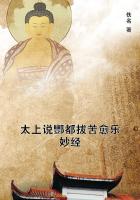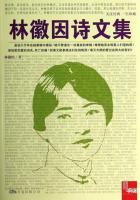In a semi-official report, which I once accidentally stumbled upon when searching for material of a different kind, the facts are stated in the following plain language: "The people"--I seek to translate as literally as possible--"do not respect the clergy, but persecute them with derision and reproaches, and feel them to be a burden. In nearly all the popular comic stories the priest, his wife, or his labourer is held up to ridicule, and in all the proverbs and popular sayings where the clergy are mentioned it is always with derision. The people shun the clergy, and have recourse to them not from the inner impulse of conscience, but from necessity. . . . And why do the people not respect the clergy?
Because it forms a class apart; because, having received a false kind of education, it does not introduce into the life of the people the teaching of the Spirit, but remains in the mere dead forms of outward ceremonial, at the same time despising these forms even to blasphemy; because the clergy itself continually presents examples of want of respect to religion, and transforms the service of God into a profitable trade. Can the people respect the clergy when they hear how one priest stole money from below the pillow of a dying man at the moment of confession, how another was publicly dragged out of a house of ill-fame, how a third christened a dog, how a fourth whilst officiating at the Easter service was dragged by the hair from the altar by the deacon? Is it possible for the people to respect priests who spend their time in the gin-shop, write fraudulent petitions, fight with the cross in their hands, and abuse each other in bad language at the altar?
"One might fill several pages with examples of this kind--in each instance naming the time and place--without overstepping the boundaries of the province of Nizhni-Novgorod. Is it possible for the people to respect the clergy when they see everywhere amongst them simony, carelessness in performing the religious rites, and disorder in administering the sacraments? Is it possible for the people to respect the clergy when they see that truth has disappeared from it, and that the Consistories, guided in their decisions not by rules, but by personal friendship and bribery, destroy in it the last remains of truthfulness? If we add to all this the false certificates which the clergy give to those who do not wish to partake of the Eucharist, the dues illegally extracted from the Old Ritualists, the conversion of the altar into a source of revenue, the giving of churches to priests' daughters as a dowry, and similar phenomena, the question as to whether the people can respect the clergy requires no answer."
As these words were written by an orthodox Russian,celebrated for his extensive and intimate knowledge of Russian provincial life, and were addressed in all seriousness to a member of the Imperial family, we may safely assume that they contain a considerable amount of truth. The reader must not, however, imagine that all Russian priests are of the kind above referred to. Many of them are honest, respectable, well-intentioned men, who conscientiously fulfil their humble duties, and strive hard to procure a good education for their children. If they have less learning, culture, and refinement than the Roman Catholic priesthood, they have at the same time infinitely less fanaticism, less spiritual pride, and less intolerance towards the adherents of other faiths.
Mr. Melnikof, in a "secret" Report to the Grand Duke Constantine Nikolaievitch.
Both the good and the bad qualities of the Russian priesthood at the present time can be easily explained by its past history, and by certain peculiarities of the national character.
The Russian White Clergy--that is to say, the parish priests, as distinguished from the monks, who are called the Black Clergy--have had a curious history. In primitive times they were drawn from all classes of the population, and freely elected by the parishioners.
When a man was elected by the popular vote, he was presented to the Bishop, and if he was found to be a fit and proper person for the office, he was at once ordained. But this custom early fell into disuse. The Bishops, finding that many of the candidates presented were illiterate peasants, gradually assumed the right of appointing the priests, with or without the consent of the parishioners; and their choice generally fell on the sons of the clergy as the men best fitted to take orders. The creation of Bishops' schools, afterwards called seminaries, in which the sons of the clergy were educated, naturally led, in the course of time, to the total exclusion of the other classes. The policy of the civil Government led to the same end. Peter the Great laid down the principle that every subject should in some way serve the State--the nobles as officers in the army or navy, or as officials in the civil service;
the clergy as ministers of religion; and the lower classes as soldiers, sailors, or tax-payers. Of these three classes the clergy had by far the lightest burdens, and consequently many nobles and peasants would willingly have entered its ranks. But this species of desertion the Government could not tolerate, and accordingly the priesthood was surrounded by a legal barrier which prevented all outsiders from entering it. Thus by the combined efforts of the ecclesiastical and the civil Administration the clergy became a separate class or caste, legally and actually incapable of mingling with the other classes of the population.















